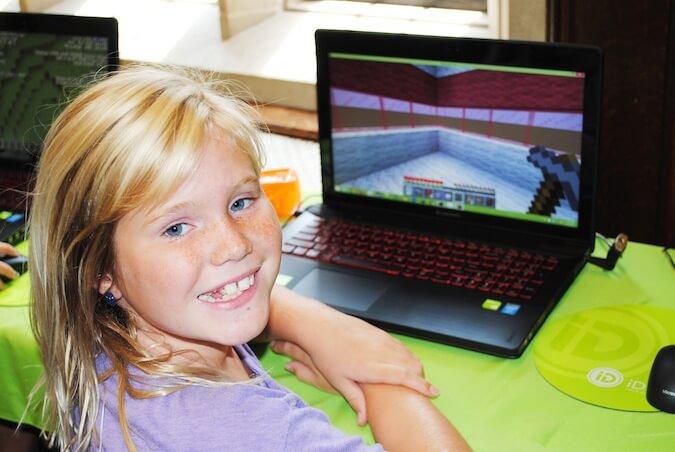Kids these days—they’re not just playing videogames; they’re making them.
“Right now we’re designing levels and puzzles that are mind-bending,” says 13-year-old Vaughn Colestock about his 3D Level Design class at iD Tech Camp at the University of Pennsylvania. “I don’t have an Xbox or a PlayStation, so I always wanted to test out if I like video games like my friends do.” ID Tech Camp at UPenn offers programming and game design courses for 7 to 17-year-olds and is one of more than 100 summer camps the company has at colleges around the country. The camps are dedicated to teaching children and young adults the STEM skills they’ll need for futures in technology. RELATED:3 reasons to send your kids to STEM camp “The earlier you get into it the more you’re going to understand as it gets more complicated,” says Matt Torresani, director of the camp at UPenn. “What these kids are doing now are really the skills that will take them to the future jobs. It’s not such an analog world anymore; it’s tech. These kids get it, they know how to do it and they’re learning it every day.” Game design courses with Minecraft, a creative open-ended video game where players build their own structures out of blocks and fight monsters, are the most popular. Minecraft is third-bestselling multi-platform video game of all time, but Torresani insists that it can be a valuable learning tool. “Minecraft is completely educational, and it’s fascinating to see what these kids can do in this game. As a public school teacher I see this vast need for the creativity, and what these kids are doing with Minecraft is creating really cool students,” Torresani says. RELATED:Girls Who Code founder Reshma Saujani urges women to take risks Java classes are also popular among campers hoping to get ahead and learn programming fundamentals before taking computer science courses in high school or pursuing it on their own.
While many iD Tech alumni have chosen to pursue careers in the STEM field, the camp teaches all kids important skills that will benefit them in whatever career path they choose.
“[They’re learning] critical thinking skills, problem solving skills, and they’re learning how to test through things, trial and error,” says Torresani. “We live in a tech-driven world and it’s only becoming more so. … This is just giving them an opportunity to kind of further their skills before they get to that world.”
UPenn’s iD Tech Camp teaches 7-year-olds how to design their own videogames

iD Tech


























